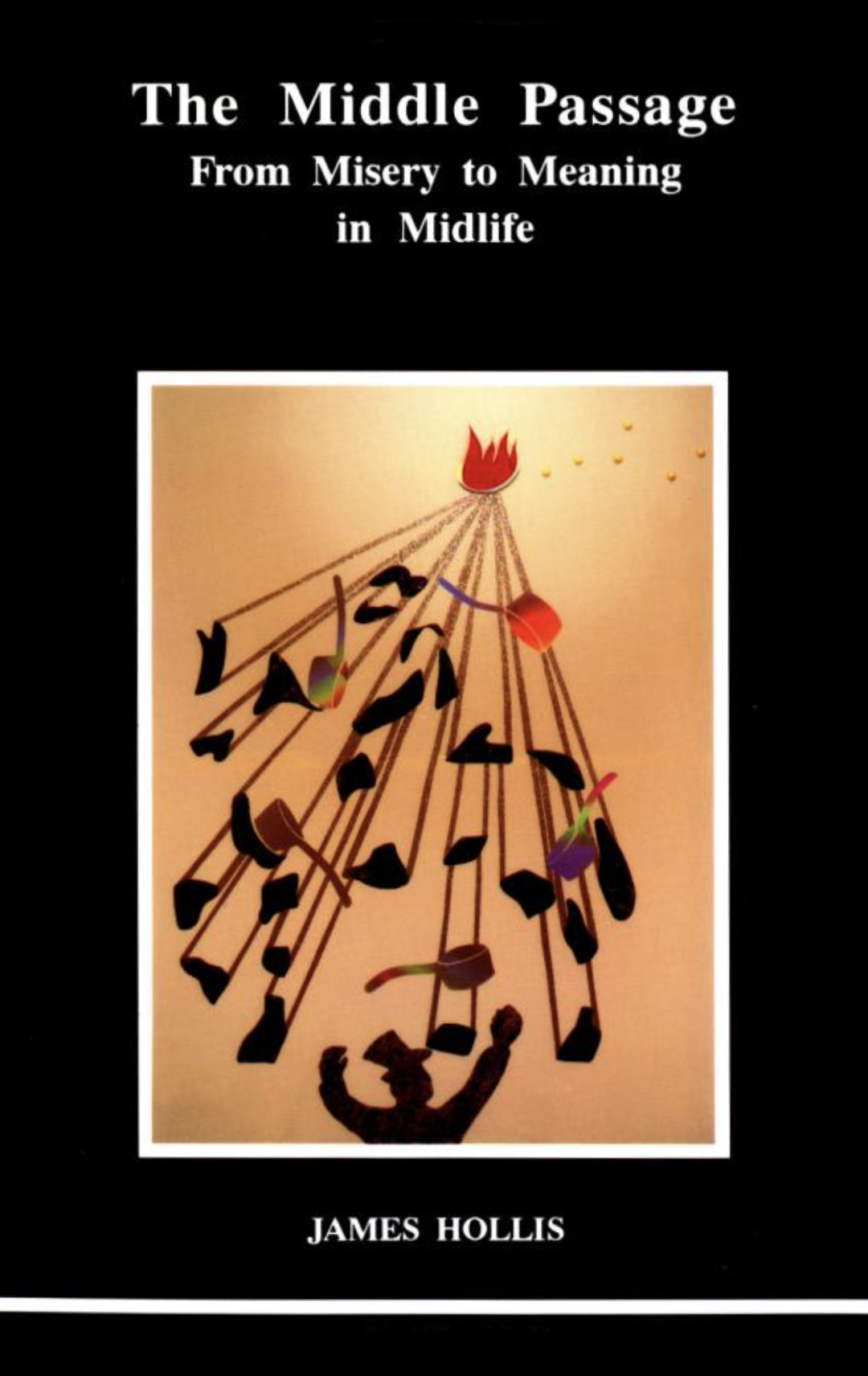Ted Lasso is a new comedy airing exclusively on Apple TV+: Jason Sudeikis is Ted Lasso, an American football coach hired to manage a British soccer team – despite having no experience. But what he lacks in knowledge, he makes up for with optimism, underdog determination…and biscuits.
Season 2’s Episode 8 – titled “Man City” – aired on September 10, 2021 and featured the book The Middle Passage: From Misery to Meaning in Midlife by frequent Speaking of Jung guest and world-renowned Jungian analyst James Hollis, Ph.D.
The Middle Passage is Hollis’s first title published by Inner City Books. In light of its television appearance we thought we would reprint the Preface here in the Blog.
You can get the book from Amazon USA, Amazon UK, Amazon Canada, and Amazon Germany. An audio version is also available from Audible, read by Dr. Hollis himself.
Or, you can purchase the book directly from the publisher, Inner City Books, based in Toronto, Ontario, Canada. They’ve also published seven additional titles by Dr. Hollis, so have a look at them while you’re there.
You can learn more about James Hollis in our Blog where you’ll find links to his 5 appearances on this podcast, his 18 books, audio CDs, films, online video courses, and upcoming webinars for 2021.
PREFACE BY JAMES HOLLIS, PH.D.
Why do so many go through so much disruption in their middle years? Why then? Why do we consider it to be a crisis? What is the meaning of such an experience?
The midlife crisis, which I prefer to call the Middle Passage, presents us with an opportunity to reexamine our lives and to ask the sometimes frightening, always liberating, question: “Who am I apart from my history and the roles I have played?” When we discover that we have been living what constitutes a false self, that we have been enacting a provisional adulthood, driven by unrealistic expectations, then we open the possibility for the second adulthood, our true personhood.
The Middle Passage is an occasion for redefining and reorienting the personality, a rite of passage between the extended adolescence of first adulthood and our inevitable appointment with old age and mortality. Those who travel the passage consciously render their lives more meaningful. Those who do not, remain prisoners of childhood, however successful they may appear in outer life.
My psychoanalytic practice over the last decade has been predominantly composed of people in the Middle Passage, and I have seen the pattern again and again. The Middle Passage represents a wonderful, though often painful, opportunity to revision our sense of self. Accordingly, this book will address the following issues:
How did we acquire our original sense of self? What are the changes which herald the Middle Passage? How do we redefine our sense of self? What is the relationship between Jung’s concept of individuation and our commitment to others? What are the attitudes and behavioral changes which support individuation and move us, via the Middle Passage, from misery to meaning?
Depth psychologists know that the capacity for growth depends on one’s ability to internalize and to take personal responsibility. If we forever see our life as a problem caused by others, a problem to be “solved,” then no change will occur. If we are deficient in courage, no revisioning can occur. In a 1945 letter, speaking of the work of personal growth, Jung wrote:
The opus consists of three parts: insight, endurance, and action. Psychology is needed only in the first part, but in the second and third parts moral strength plays the predominant role.¹
Many of us treat life as if it were a novel. We pass from page to page passively, assuming the author will tell us on the last page what it was all about. As Hemingway once said, if the hero does not die, the author just did not finish the story. So, on the last page we die, with or without illumination. The invitation of the Middle Passage is to become conscious, accept responsibility for the rest of the pages and risk the largeness of life to which we are summoned.
Wherever the reader may be in his or her life, the summons to us is the same as to Tennyson’s Ulysses:
The long day wanes: the slow moon climbs: the deep
Moans round with many voices. Come, my friends,
‘Tis not too late to seek a newer world.²
¹ C.G. Jung Letters, Vol. 1, p. 375
² “Ulysses,” in Louis Untermeyer, ed., A Concise Treasury of Great Poems, p. 299
—James Hollis, Ph.D., Jungian analyst, The Middle Passage: From Misery to Meaning in Midlife, pp. 7-8
